There are terrifying numbers of young workers being put at risk – and the scary part is how much the industry knew. READ THE CHILLING REPORT
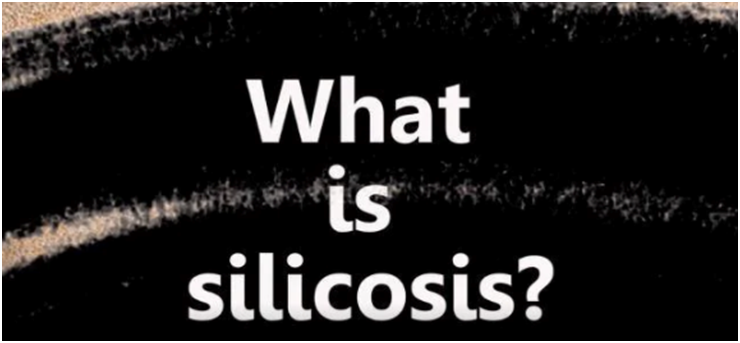
AN international supplier of toxic engineered stone knew of the potential fatal risks it presented to stonecutters at least 17 years ago, but continued to sell it.
A 2003 material safety data sheet obtained by the Bulletin shows stone giant Caesarstone warned that stonemasons should never have been allowed to grind, machine or cut the stone using dry methods.
The toxicology report states that the respirable crystalline silica (RCS) contained in the product had been listed as a suspected human carcinogen by the International Agency for Research on Cancer.
“Inhalation of free respirable silica may cause silicosis or other serious delayed lung injury,” the data sheet reads. “Silica may be released by grinding, machining or cutting this product.”
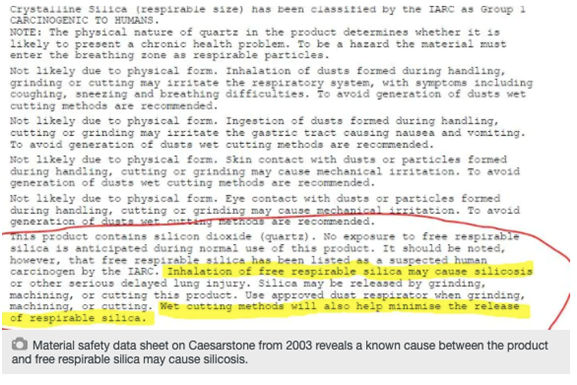
It recommended using an approved dust respirator when cutting Caesarstone.
“Wet-cutting methods will also help minimise the release of respirable silica.”
Despite the written disclaimer nearly two decades ago, thousands of stonemasons across Queensland and Australia have been covered in silica dust like “snowmen” without any safety equipment.
A Bulletin investigation this month revealed 174 Queensland stonemasons have been diagnosed with silicosis in less than two years. Thirty-two are expected to die from progressive massive fibrosis.
A whistleblower told the Bulletin the stone industry was “aware of the problems of man-made imitations and had heated debates on it”.
“I worked in the stone industry for many years, marketing internationally and then I opened my own stone benchtop company using real granite,” he said.
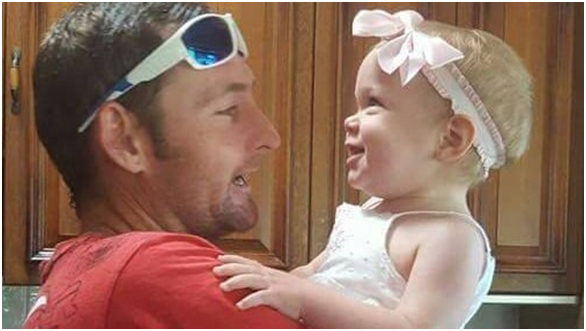
“I hated the fake man-made stuff and was at continual loggerheads with them (importers of engineered stone).
“They kept telling the public they improved what God had made and took the imperfections out of real granite. They made billions of dollars out of it and should have to pay for their lies.
“It’s there as plain as day in the safety data sheet. It (engineered stone) is as bad as it gets.”
Caesarstone, whose total revenue in 2016 was US$538.54 million, has production facilities in Israel and the USA.
Caesarstone Australia told the Bulletin that it had and continued to “actively promote and educate on safe handling of our products by stonemasons to protect against the risks of silica dust exposure”.
“In the 12 years since Caesarstone Australia began direct operations in Australia, we have provided the independent stonemason industry information about the safety measures required to be implemented when working in a silica dust environment including,” the statement read.
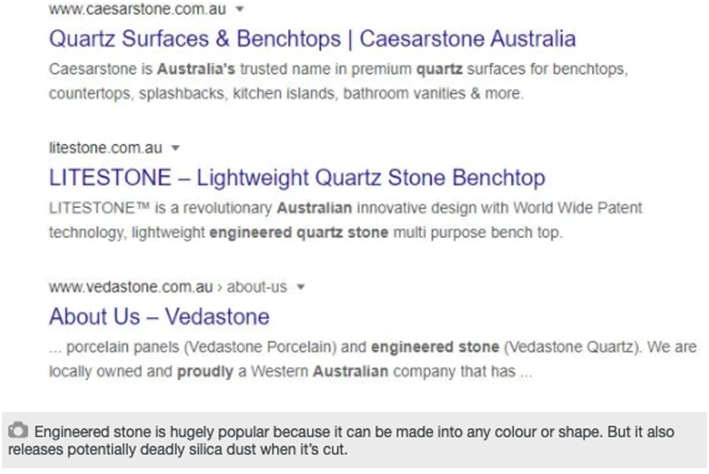
“Caesarstone supplies each individual slab to stonemasons with the relevant warnings, health and safety information prior to fabrication and installation.”
It said the surfaces were “completely safe in their manufactured state and when installed in any environment” but that it welcomed ongoing audits of stonemason workshops to ensure compliance to safety standards.
“Caesarstone’s own recommended safety standards have long urged stonemasons to use wet-cutting and proper respiratory protection.”
In 2017-18, inspectors from Workplace Health and Safety Queensland audited the stone benchtop industry and initially found “widespread noncompliance with WHS laws within the industry”.
Both employers and workers had a poor understanding of the risks of respirable crystalline silica and uncontrolled dry-cutting was commonplace up until the past one-five years.
Recently, in response to questions filed by the Bulletin, the Office of Industrial Relations said a “sample” of 140 workplaces would be re-audited to see if they were complying with the code.
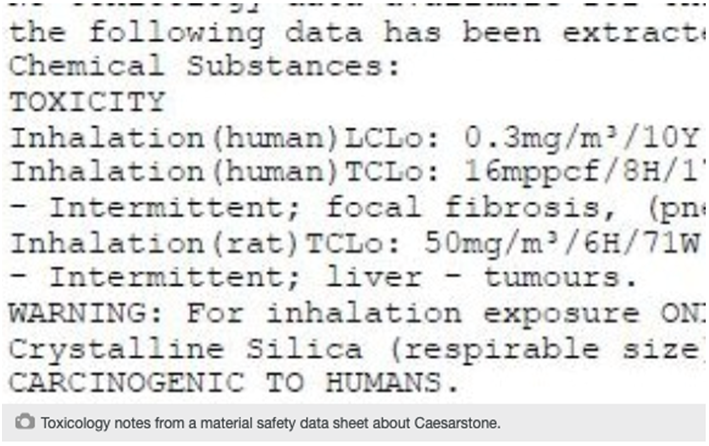
But it’s too little too late for thousands of stonemasons such as Gold Coast father of six Adam Emery, who has the most aggressive form of silicosis. Before he dies he wants the importation of engineered stone banned in Australia.
Last year, Industrial Relations Minister Grace Grace requested that the Australian Competition and Consumer Commission investigate the matter of imported engineered stone and the related silicosis risks.
As a result the Federal Government set up the National Dust Disease Taskforce to investigate those at risk in the industry. The taskforce has flagged five interim recommendations and 17 findings, including examining if the importation of engineered stone products should be banned in Australia. A final report is due by mid-2021.